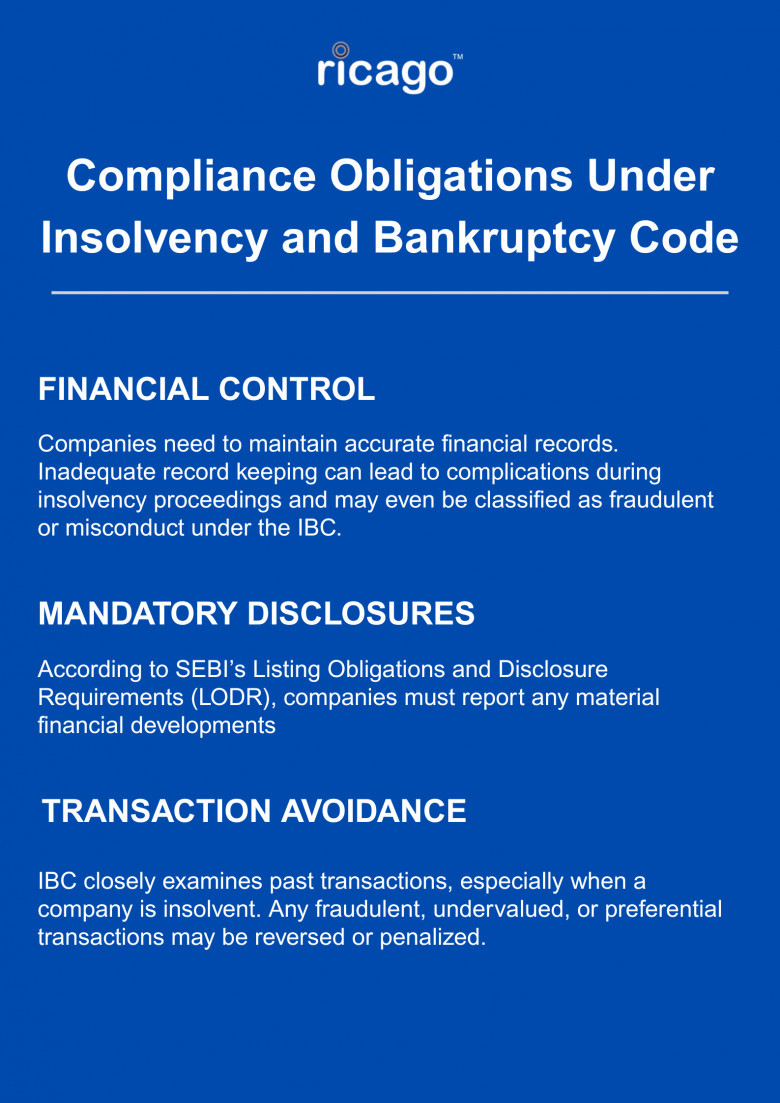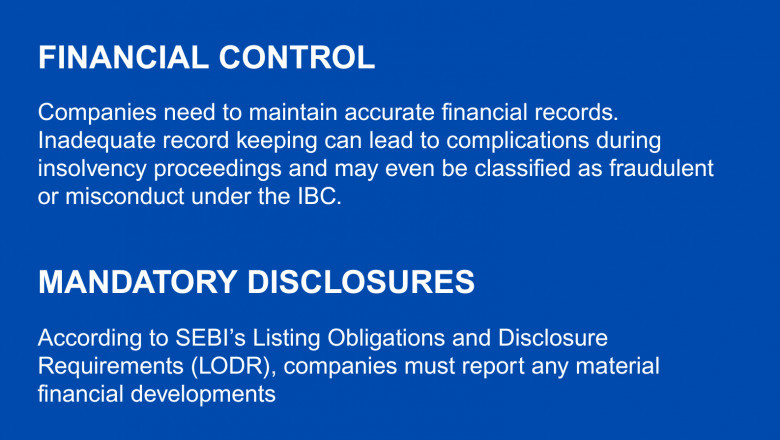views

The Insolvency and Bankruptcy Code (IBC) is an essential legislation that every Indian business should be familiar with. Enacted in 2016, the IBC was designed to streamline the process of resolving insolvencies, replace outdated laws, and enhance India's financial ecosystem.
What do you mean by IBC?
The Insolvency and Bankruptcy Code (IBC) is a law designed to provide quick and fair resolution of insolvency cases for companies, individuals, and partnership firms. It aims to protect the interests of both debtors and creditors while ensuring business continuity wherever possible.
Why is IBC Important?
The Insolvency and Bankruptcy Code (IBC) has a crucial impact in influencing business operations and financial planning:
-
It speeds up debt recovery and minimizes delays in the legal process.
-
It improves investor confidence by establishing a stable legal environment.
-
It acts as a legal safeguard for creditors, promoting transparency and fairness.
Obligations for IBC Compliance
Insolvency and Bankruptcy Code (IBC) mandates that businesses operate with increased transparency, creditor sensitivity, and strict compliance. Here's a summary breakdown of the key obligations:
-
Financial Control
Companies need to maintain accurate financial records. Inadequate record-keeping can lead to complications during insolvency proceedings and may even be classified as fraudulent or misconduct under the IBC.
Tips for Compliance:
-
Conduct internal audits periodically to detect and fix issues, while maintaining a clean and verifiable balance sheet
-
Make sure to repay debt timely to avoid any defaults.
-
Mandatory Disclosures
Companies must report any material financial developments under SEBI’s Listing Obligations and Disclosure Requirements (LODR).
Tips for Compliance:
-
Establish a compliance calendar to track disclosure deadlines and ensure timely communication about financial risks.
-
Provide training for the finance team on LODR norms to understand and adhere to.
-
Transaction Avoidance
IBC closely examines past transactions, especially when a company is insolvent. Any fraudulent, undervalued, or preferential transactions may be reversed or penalized.
Tips for Compliance:
-
Maintains Comprehensive records of significant events and ensures compliance with market practices and approvals.
-
Avoid last minute asset transfers and insiders to uphold in financial activities.
Risks of Ignoring the Insolvency and Bankruptcy Code IBC
Failure to adhere with the code can have serious consequences:
-
Failure to adhere by creditors or serious consequences.
-
Restrictions on directors managing other businesses.
-
Loss of control over the company’s operations occurs once the Corporate Insolvency Resolution Process (CIRP) begins.
.
Conclusion
The Insolvency and Bankruptcy Code (IBC) has fundamentally transformed compliance for businesses in India. Best practices like financial discipline and transparency are now legal requirements. Companies that embed these principles into their governance frameworks not only reduce risk but also enhance credibility and attract investors and build a foundation for sustainable growth.
Ricago simplifies the Insolvency and Bankruptcy Code (IBC) compliance process with automated workflows, real-time monitoring, and reporting tools, enabling businesses to stay prepared for evolving regulations.






















Comments
0 comment